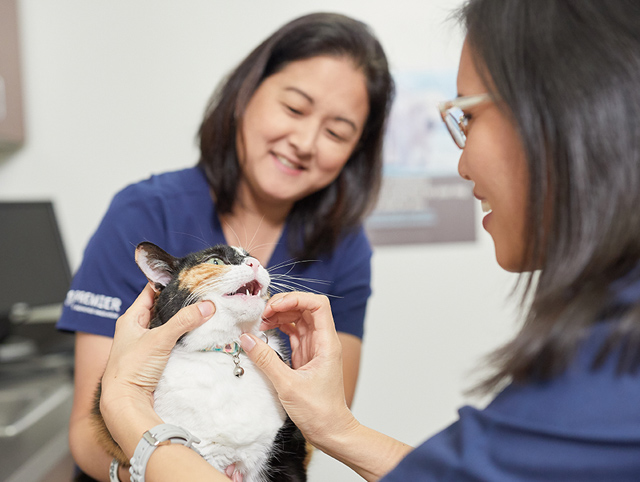Your pet relies on you to protect him or her from harm, discomfort, and preventable diseases. Since April is National Heartworm Awareness Month, it is the ideal time to talk about how you can help keep your pet free from this dangerous disease that can be found in many countries worldwide and in every state within the United States.
UNDERSTANDING HEARTWORM
Heartworm is a roundworm that is spread by mosquito bites. Once it makes its way into a host, heartworm travels to the lungs, heart, and associated blood vessels. These worms can get as long as a foot and can cause heart failure, severe lung disease and damage to organs throughout the body.
If a mosquito bites an infected creature and then bites your pet, it can transmit infective stage larvae into your furry family member. Over the course of six months, the larvae can develop into sexually mature adults that can live anywhere from two to seven years, depending on the host.
SIGNS OF HEARTWORM
While some animals are quick to show symptoms when they have heartworm, others may show no symptoms at all. You should also be aware that the symptoms differ between dogs and cats.
Dogs
• Decreased appetite
• Persistent cough
• Fatigue after activity
• Weight loss
• Swollen belly
Cats
• Periodic vomiting
• Coughing
• Lack of appetite
• Trouble breathing
• Weight loss
• Swollen belly
• Difficulty walking
• Seizures or fainting
Unfortunately, some pets show no signs at all except for collapse or sudden death. That is why preventative measures are so important.
HOW TO PREVENT AND TREAT HEARTWORM
You can prevent and treat heartworm by testing your pets annually for the infection during a preventative care appointment at our veterinary practice. You should also administer heartworm prevention medication all year long.
Whether you choose a heartworm medication in the form of topical medication, injection, or pill, you are doing a great service for your pet. Medication can prevent heartworm parasites from developing as long as it is administered during the parasite’s larval stages.


















